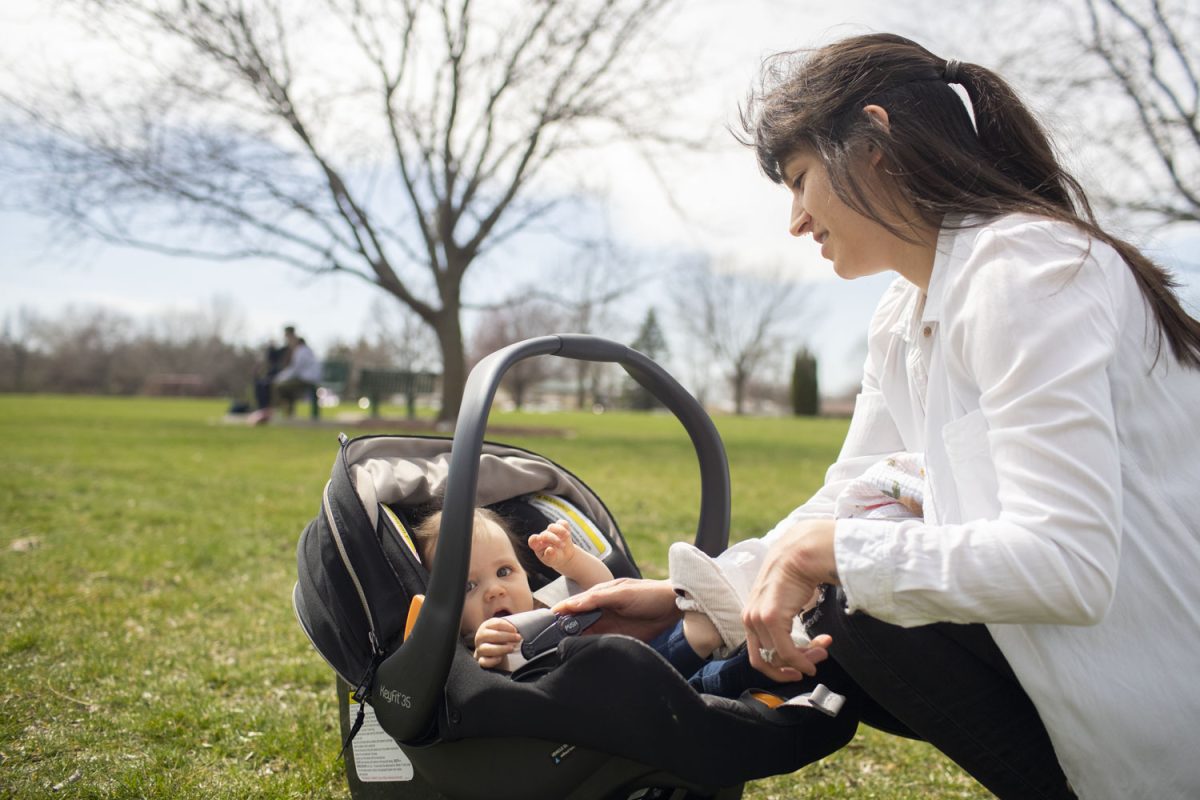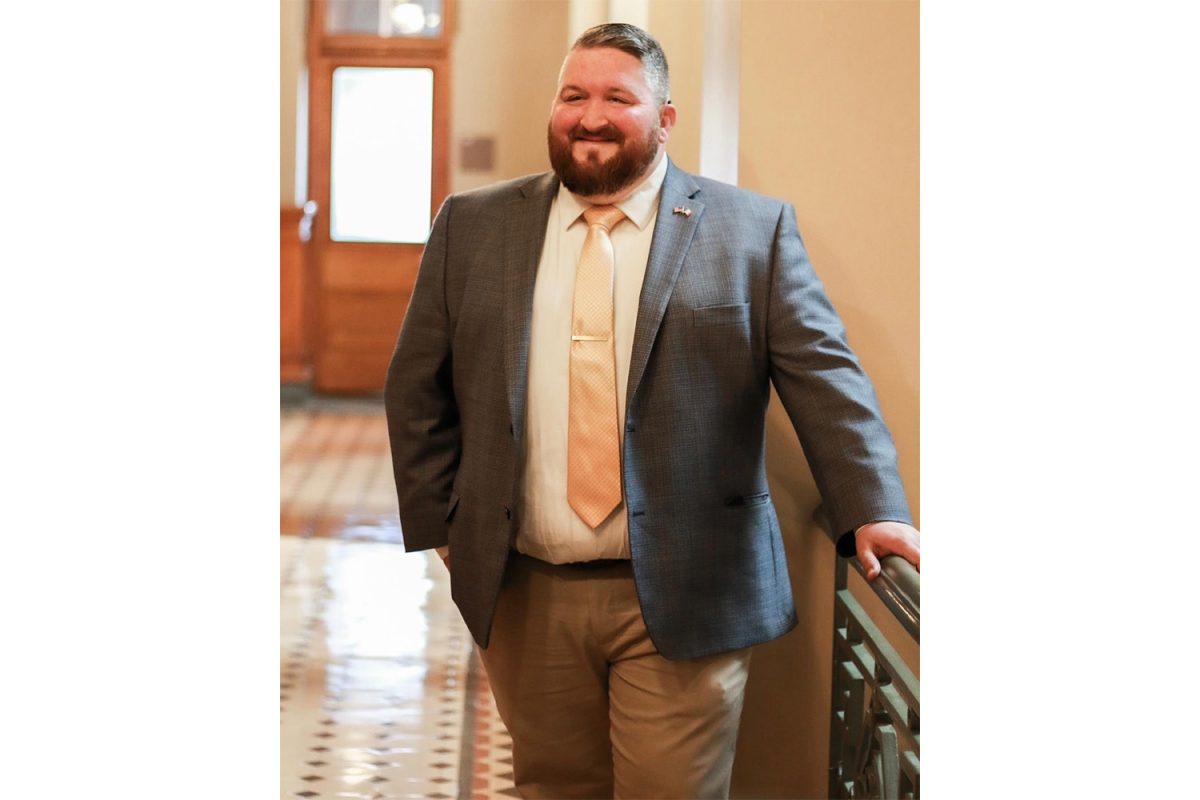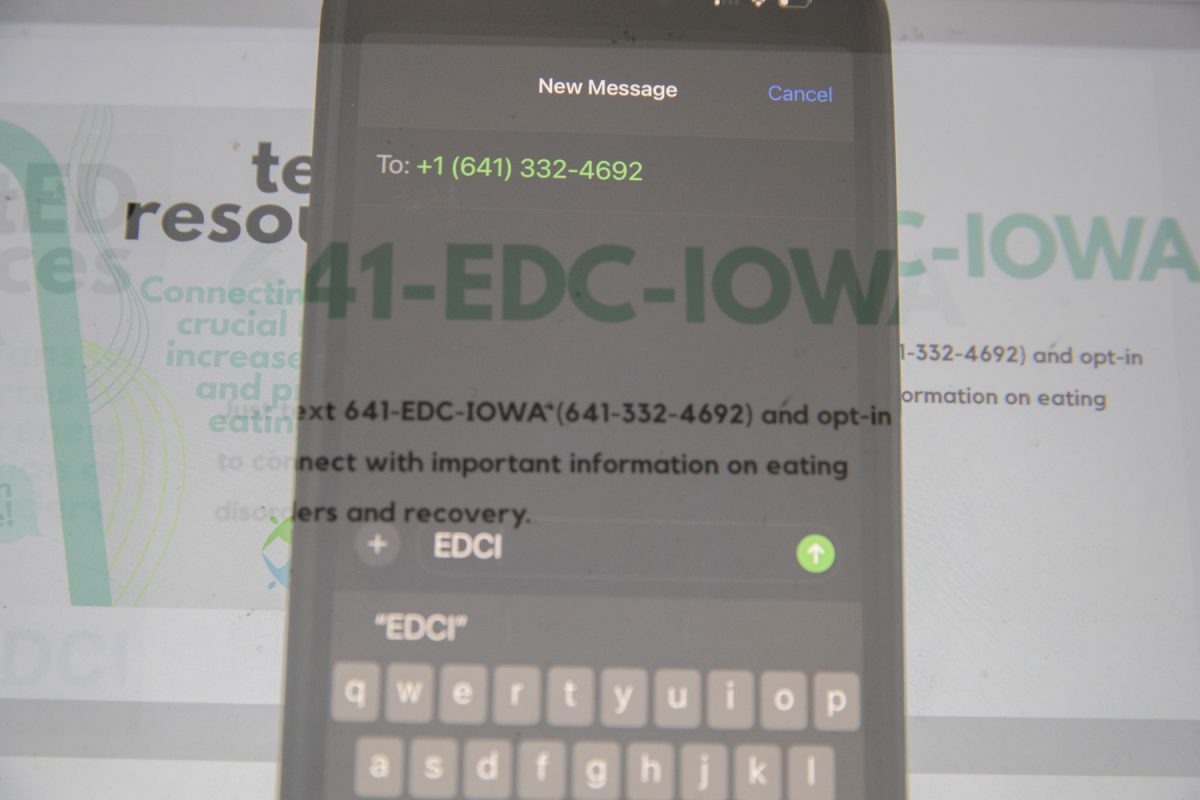Sheala Been, a staff nurse in the neonatal intensive care unit at the University of Iowa Stead Family Children’s Hospital, found the unknowns that came with being a first-time mother more stressful than she imagined.
Been, the mother of 9-month-old Mabel, was constantly worried about whether her baby was okay and focused on personal health by eating well and staying fit to ensure she had a safe pregnancy. Between her scans during the early stages of pregnancy, Been and her husband would wait anxiously.
Feeling anxious and stressed during pregnancy and postpartum is common. Nichole Nidey, assistant professor of epidemiology at the UI, focuses on substance abuse, anxiety, and depression in pregnant women and the factors that play into these stressors.
Despite the link between mental health concerns and pregnancy, services in Iowa are limited. According to the Iowa Department of Health and Human Services, about 26 percent of mothers in Iowa diagnosed with depression received counseling during their pregnancy.
Nidey said Iowa currently ranks 44th out of 50 states in access to mental health professionals. During pregnancy, Nidey said one of the primary stressors is having enough paid time off to attend prenatal visits, which is a vital part of ensuring a baby’s health and safety.
“Sometimes you have to go every week, and for those women with high-risk pregnancy, you have to go even more frequently,” Nidey said.
With Iowa being a rural state, Nidey said access to proper health care can be difficult to come by. According to a report from the Iowa Department of Public Health in 2020, there were 4.5 OB-GYNs per 10,000 women in the U.S. In Iowa, that number was as low as 3.3.
“We have a lot of patients who will travel three, four, five hours to come to UIHC, for example,” Nidey said. “Not having enough maternal health care providers in the state of Iowa adds additional stress.”
For Been, having enough maternity leave after delivering her baby was also a significant postpartum stressor. Under the Family Medical Leave Act, Been was eligible for six weeks of maternity leave postpartum. Been had accrued six weeks of sick and vacation leave, meaning she had 12 weeks off to care for her baby.
“I can’t even begin to imagine what it would have been like to go back after six weeks because even after 12 weeks, I wasn’t ready to leave my baby, but I had a job that I needed to go back to,” Been said.
Nidey said another barrier for women postpartum was access to insurance. The rules for Medicaid eligibility, for example, change during pregnancy. Nidey said women who may have been ineligible for Medicaid before pregnancy can become eligible during pregnancy as the requirements change. In Iowa, pregnant people are eligible for Medicaid with a family income of 380 percent of the Federal Poverty Line.
Under Iowa Law, postpartum mothers and their babies are eligible for Medicaid for 60 days after delivery. Once those 60 days have ended, many women lose access to the health care benefits they had received under Medicaid. Some Iowa legislators are currently working to expand eligibility to a year under Senate File 2251. The bill has passed both the House and Senate.
Alex Murphy, director of communications at the Iowa Department of Health and Human Services, said maternal mental health is addressed by the Iowa Maternal Quality Care Collaborative and its Mental Health and Substance Abuse Subcommittee, which work to develop strategies to improve maternal mental health and provide additional services mothers may need.
Been said breastfeeding was her biggest stressor postpartum, as her baby would be unable to latch on, which made feeding times difficult.
“It took a lot of time, patience, learning, and grace,” Been said.
Nidey said finding adequate child care postpartum continues to be a stressor for many women as well. According to Nidey, waitlists can be up to 18 months long, and it can be especially difficult to find a spot for newborns.
Been worried about what she would do once her daughter was born, as she didn’t want to send her daughter to daycare. Been only works weekends now, allowing her to spend more time with her child.
“I am grateful that everything worked itself out and that I had the support of my husband and family,” Been said.
During delivery, Been remembers the stress that came with childbirth.
“When it was finally time to push, I was overwhelmed with emotion. You can truly do everything you can to prepare, but nothing prepares you for that moment,” Been said. “Motherhood can be really scary, especially with your first child, but trying to live in the moment is so important because that time will be gone really quickly.”















